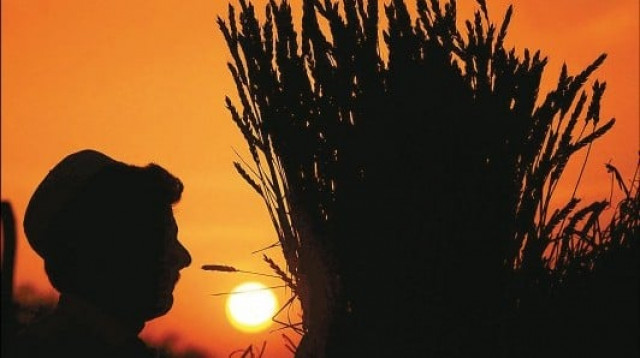Drought despite rains: ‘Downpour is severe, but insufficient’
Abnormal climate patterns in some of the world’s vital food-producing regions are threatening global food shortages.

The ongoing rain spell is severe, but not sufficient to fill the country’s major reservoirs and help avert a possible drought, according to meteorological experts.
Meanwhile, given the predictions of local drought and looming grain crisis internationally, the country’s leading Met expert has warned the government against exporting its grain stock.
Drought conditions
While Kashmir, parts of Khyber-Pakhtunkhwa and upper Punjab are experiencing heavy downpours, Sindh and Balochistan are facing severe drought conditions which will continue in the coming months, experts say.
The monsoon is already approaching its end and Met officials say the current spell will subside in a day or two.
Weather forecasts have already been revised – from the June prediction of overall 15% above normal monsoon rains to 40% below average rainfall for Sindh and Balochistan, and 20% less rains elsewhere in the country.
Meanwhile, the two largest dams – Tarbela and Mangla – are well below their capacity and unlikely to be filled during the current monsoon spell, according to a new advisory issued on June 9th by Arif Mehmood, Director-General Pakistan Meteorological Department (PMD).
According to Mehmood, Mangla’s current water level is at 1,176 feet – 67 feet below its maximum level of 1,242 feet. Similarly, Tarbela’s water level is currently around 1,502 feet – 48 feet below its capacity of 1,550 feet.
The less-than-capacity levels in Tarbela and Mangla do not bode well for the next cropping season – the country is likely to have low production of food grains at a time when their prices in the international market would be very high, experts warn.
Warning to govt
The country’s leading meteorological expert and the advisor on met and climate affairs, Dr Qamaruz Zaman, warned the government that a food grain crisis is looming internationally and Pakistan should desist from exporting its stock of grains.
In a letter dated August 6, and sent to top authorities, the advisor said that “abnormal climate patterns in some of the world’s vital food-producing regions are threatening global food shortages.”
“As such there is a strong possibility of lower production of food grains and soaring prices globally in the coming months,” Dr Zaman said.
Against his warning, though, the country’s highest economic decision-making body decided to export one million tones of wheat to Iran, as barter for fertiliser, and 30 metric tonnes of sugar to Tajikistan, at $20 below the international price.
Published in The Express Tribune, August 24th, 2012.



















COMMENTS
Comments are moderated and generally will be posted if they are on-topic and not abusive.
For more information, please see our Comments FAQ